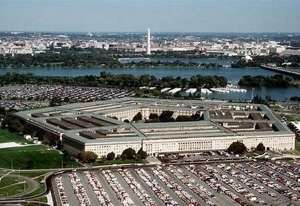Turkish PM, Recep Tayyip Erdogan, called Israel a terrorist state, following its bombing of the Gaza Strip. "Those who associate Islam with terrorism turn a blind eye to the mass killing of Muslims, they turn their eyes away from the killing of children in Gaza. Because of that, I think that Israel is a terrorist state, and its actions are acts of terrorism", he said, at a conference of the Islamic Eurasian Council, which was held in Istanbul.
Turkish Foreign Affairs Minister, Ahmet Davutoglu, will travel to the Gaza Strip together with several of his peers in member countries of the Arab League.
The relations between Israel and Turkey, which used to be the only ally Israel had in the Muslim world, have deteriorated after Israeli soldiers attacked a Turkish ship which was carrying humanitarian aids, in order to enforce a naval blockade on the Gaza Strip, in 2010. Nine Turkish citizens were killed, following the clash between the activists on board the ship and the Israeli troops. Turkey has expelled the Israeli ambassador and has frozen its relations with the Jewish state, after a UN report, presented last year, exonerated it from most of the responsibility for the incident. This month, the Ankaran authorities brought an in absentia lawsuit against four Israeli military commanders.
• Great Britain: Israel runs the risk of losing the support of the international community
Izzat Risheq, assistant to the head of the political bureau of Hamas, Khaled Meshaal, wrote on Facebook that the faction will only accept a truce if Israel stops its aggression and the strategy to assassinate its leaders and will lift the blockade of the Gaza Strip, while Israeli deputy prime minister Moshe Yaalon wrote on Twitter, that the government in Tel Aviv, will not attack, if no missiles or terrorist attacks aimed at Israeli citizens will be launched from the Strip.
UN secretary general, Ban Ki-moon, will arrive in Cairo to talk about the peace efforts led by Egypt.
Also, an Israeli delegation visited Cairo to negotiate a truce, according to the Israeli press. The government led by Benjamin Netanyahu declined to comment on the matter.
An official close to the prime minister said that Israel is ready for a raid in the Gaza Strip, but it would prefer a diplomatic solution. "If this is possible, than a ground operation would not be necessary. If diplomacy fails, we may not have another solution than to send in troops", he emphasized. The wording of the official is similar to that of US president Barack Obama, who said that avoiding sending Israeli troops in the Gaza Strip would be "preferable", but he said, however, that Israel has the right to defend its citizens, as no country can tolerate having its population targeted by missile attacks.
A cease-fire agreement between Israel and the Gaza Strip could be close, Egyptian PM, Hisham Kandil said for Reuters. The authorities in Cairo are in contact with Israeli officials, as well as with Palestinians, as well as with global players, including the United States, Great Britain and Germany, and regional ones, such as Turkey and Qatar, he said.
Another Egyptian, who did not wish to be named, stated for Reuters, that his country received encouraging signs concerning a truce, from both sides, which are interested in receiving guarantees from the opposite faction.
The death of eleven Palestinian civilians, of which nine came from the same family, following an air raid which took place on Sunday, has intensified the calls for a ceasefire and could diminish the support of the Western countries for the Israeli offensive. The number of victims resulting from the bombardments which began on November 14th, has exceeded ninety people, of which over half are civilians.
The government in Tel Aviv has a window of opportunity for bombings, which the US and Europe have granted it and which is closing down fast, due to the increasing number of victims, according to the BBC. British foreign affairs minister, William Hague, warned Israel that it risks losing the support of the international community, if it were to launch a land operation in the Gaza Strip.
Israeli military analysts consider that the Government in Tel Aviv has reached a large part of its military objectives, in the first two days of conflict, and, as military strikes continue, the benefits decrease. The negative consequences, represented by the growing number of victims among civilians and by the possibility of losing international support, are, probably more powerful than the positive ones, consisting of the destruction of Hamas infrastructure or rockets, the BBC report states.
However, an incursion of the Israeli troops in the Gaza Strip can not be ruled out, he said.
Any agreement between Israel and Hamas would have an informal nature, and both sides will want to be able to present tangible benefits, as a result. Israel wants the bombings to stop, and aside from ending the conflict, Hamas is looking to have the border-crossing barriers removed. The odds of an agreement succeeding depend far too much on the targets which the launched missiles will reach, the BBC journalist writes, who states that, if populated regions in Tel Aviv or Jerusalem get hit, this would heavily influence the numbers of the parties.
























































